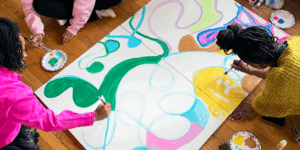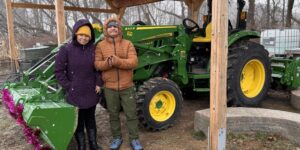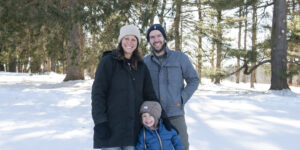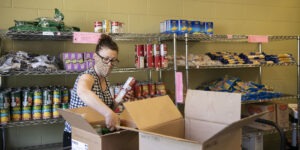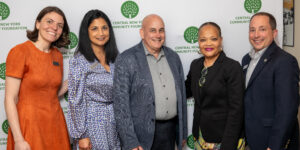Greenspaces are important for the welfare of the environment, but they can mean even more to the strength of a neighborhood. Communities that construct communal gardens can enhance the interaction and relationship between residents. Refugee and Immigrant Self-Empowerment (RISE) transformed an abandoned lot into something beautiful.
Families living in the Lodi Street area struggle with accessing fresh produce since they do not have any grocery stores nearby. To help, RISE created a garden for communal use by local refugees. The new garden has not only assisted with gaining access to fresh produce and creating a sense of community, but it has also become a therapeutic tool for them.
“The garden has improved the mental health of a lot of our farmers,” explained Brandy Colebrook, agricultural program director at RISE. “It is clear to see that being outside and working in the fields is not only allowing them to grow their own plants but is also helping them through their post-traumatic stress.”
The community is utilizing the garden in a variety of ways. RISE hosts classes every Tuesday evening at the Lodi Street Garden for farmers with hearing impairments. Attendees learn fundamental gardening and farming skills to help them build and sustain their own farms.
“We focus our classes on beginner gardening and farming techniques including teaching participants how to accommodate weather changes,” said Colebrook. “Most of our farmers are from very different climates than here in Syracuse.”
The three-year program is structured to provide continued opportunities for participants as they move between different skill levels each year. In the first stage, farmers go through instructional training. During the second stage, they are allocated one-eighth of an acre where they can choose what they plant. Finally, in the third stage, the farmers are given a quarter of an acre and they are given marketing consultants. At the end of the program, farmers are encouraged to have obtained land to lease to continue farming.
RISE has taken advantage of numerous local grants, including the Neighborhood Greening Grants awarded by the Syracuse Parks Conservancy. Every year, we provide funding support toward these grants.
“The Greening Grants committee evaluates each application based on how well they can fill a community need,” said David Harding, chairman of the Neighborhood Greening Grants program at the Syracuse Parks Conservancy. “The criteria are stipulated by the Community Foundation.”
The Park Conservancy has been averaging about 8 to 10 applications each year. It recently increased its maximum grant from $1,000 to $2,000. The organization continues to provide resources and advocates for the improvement of Syracuse’s environment through its community gardens.



